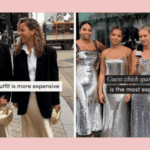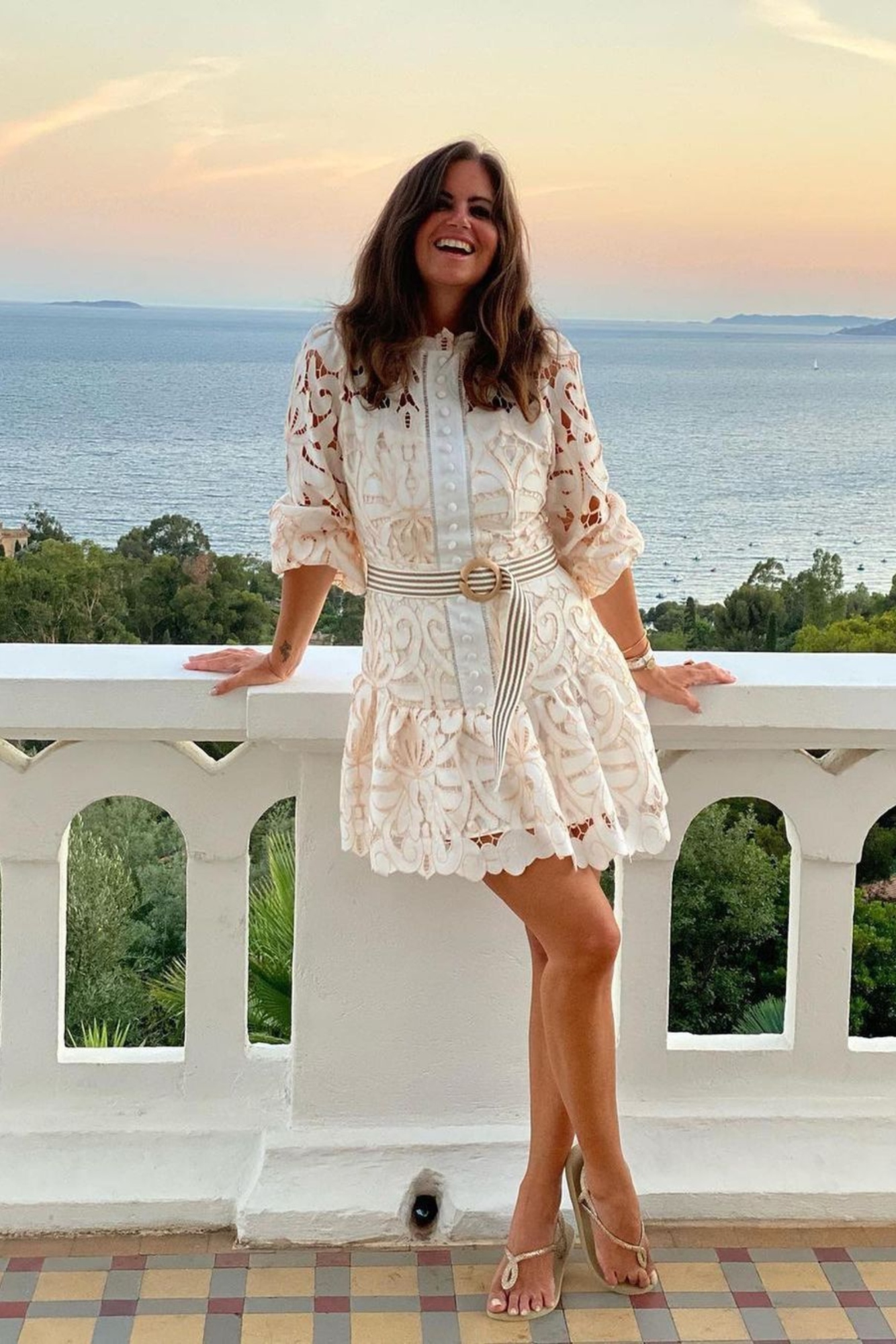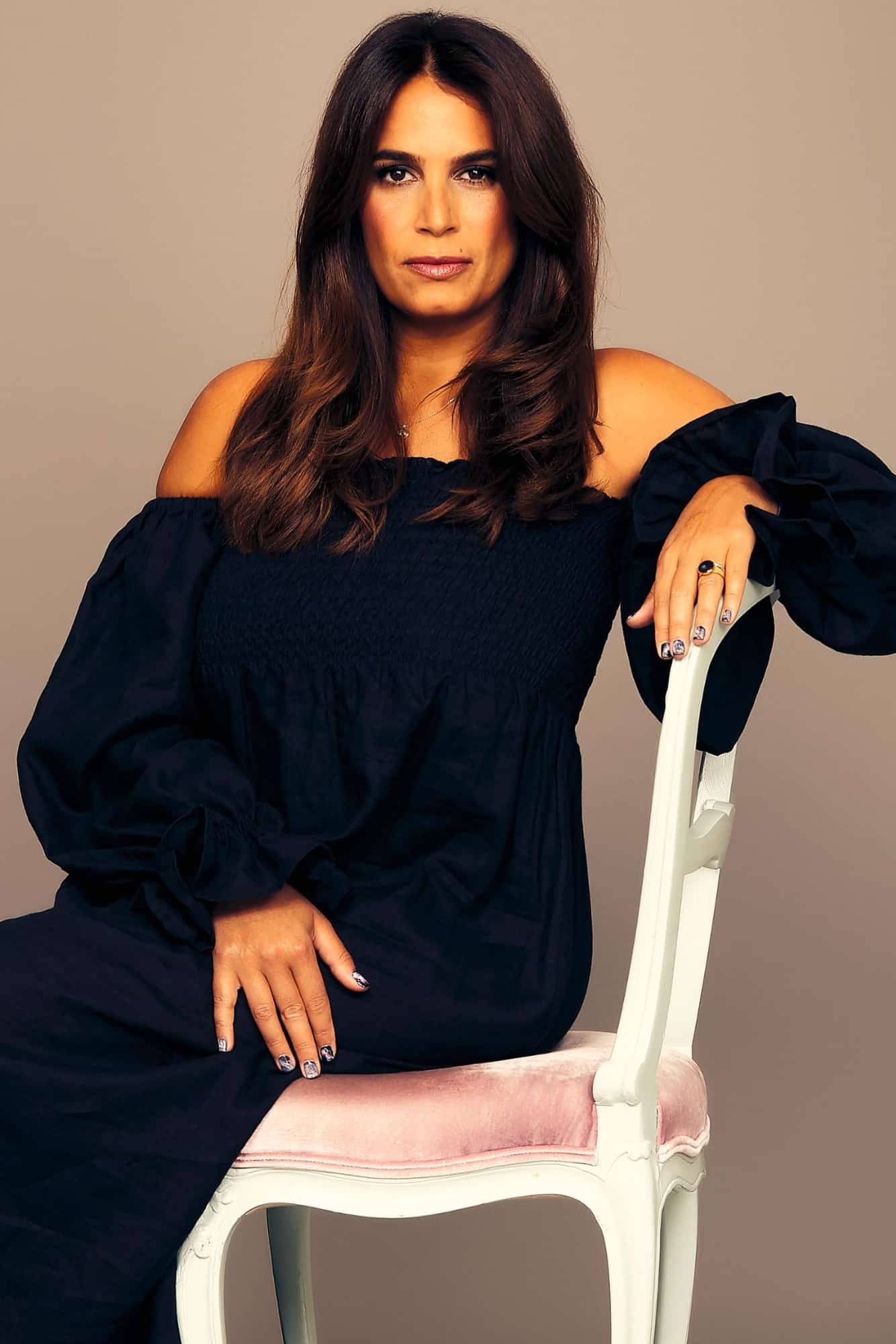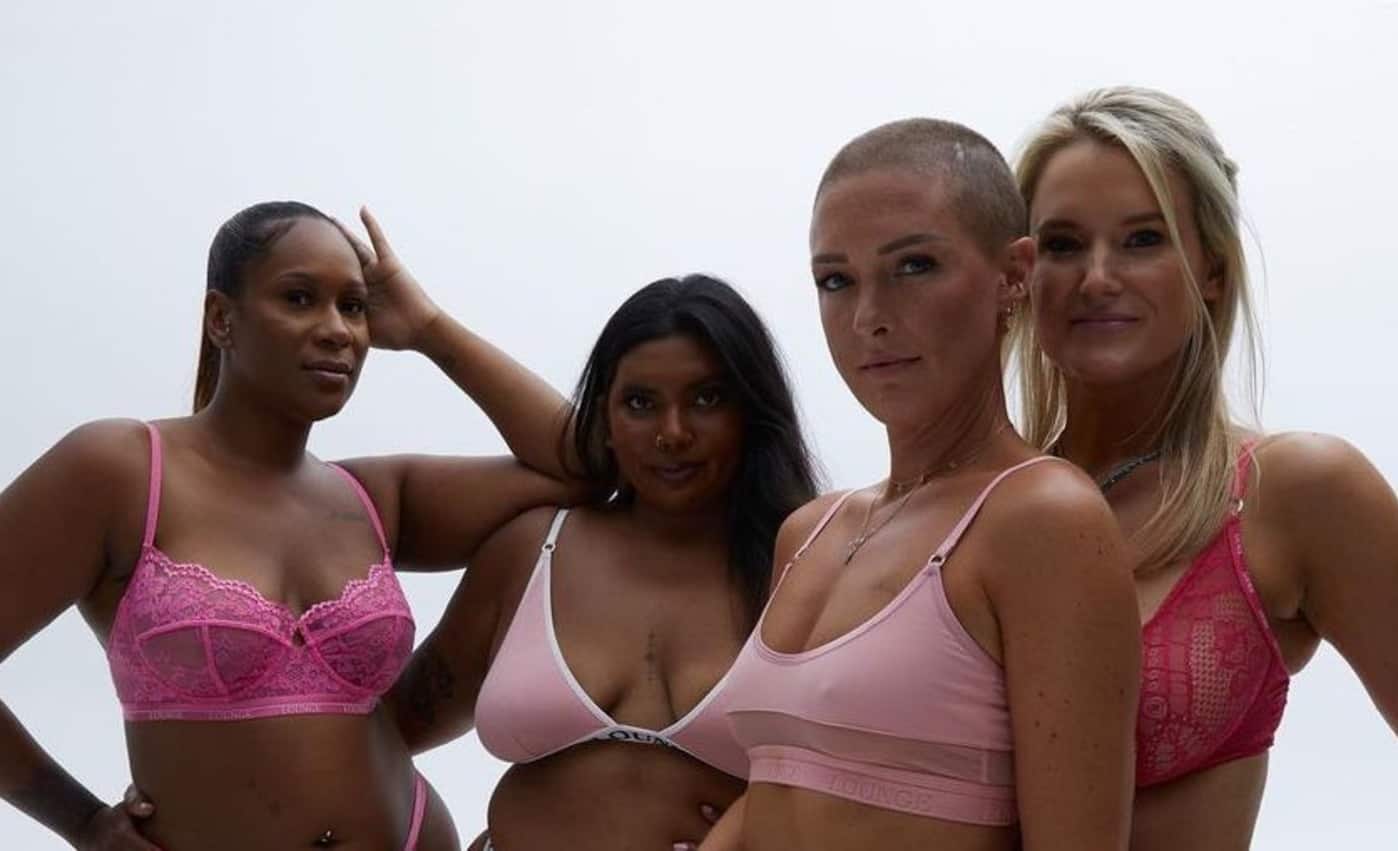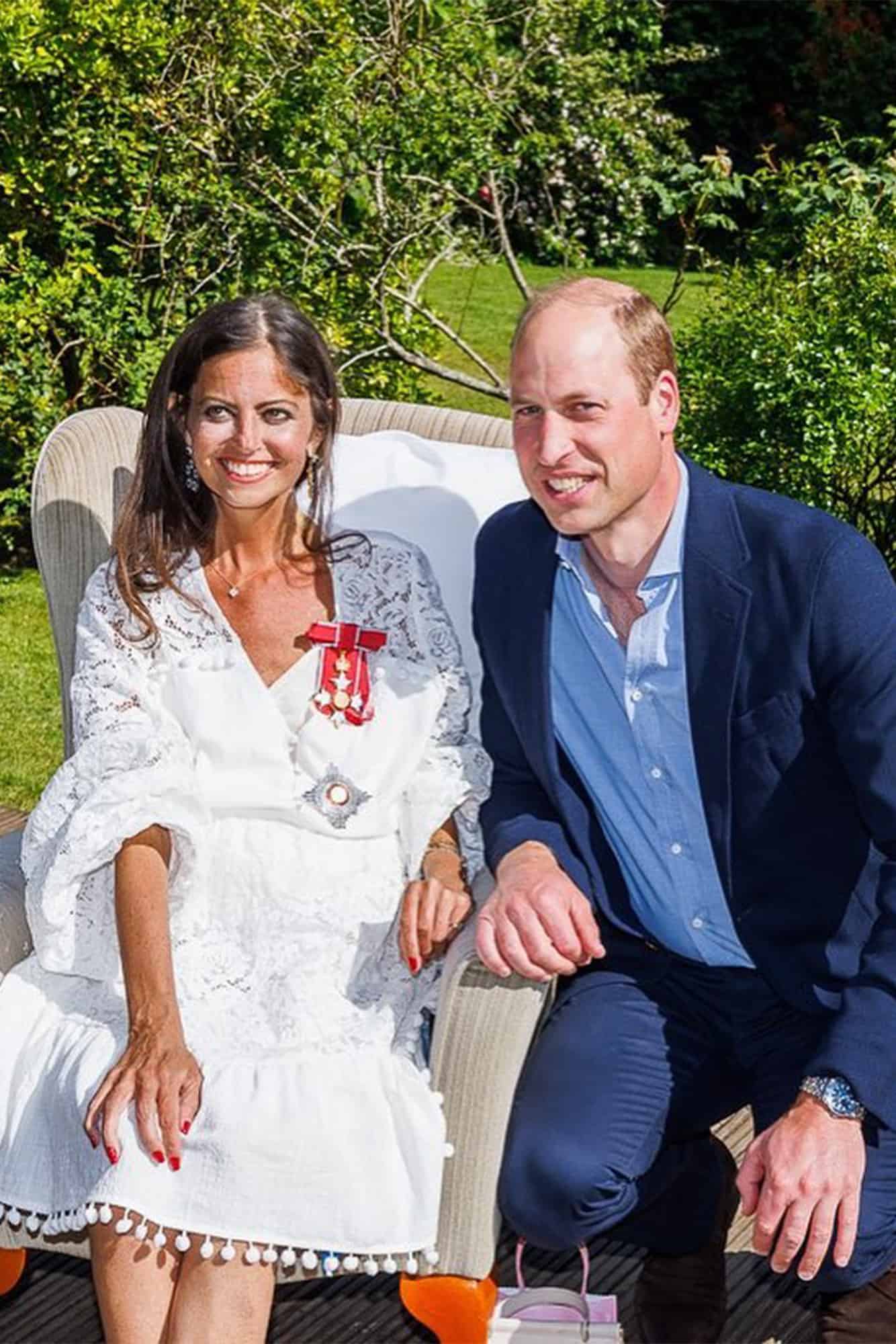Dame Deborah James died on 28 June 2022, aged just 40-years-old. From the moment she told her followers and fans on Instagram that she would no longer be receiving treatment, the nation watched in awe as she took on death as she had taken on life – with verve and nerve: receiving a damehood from the Prince of Wales; having a rose named after her; and the extraordinary fundraising drive for Cancer Research UK, which raised £6 million in six weeks, and now, a year on, stands at £11.3 million.
But James had always defied the odds. When she was diagnosed with stage 4 bowel cancer in December 2016 at 35-years-old, the mother-of-two was given an 8% chance of living for five more years. What happened next is testament to a woman who decided to show people how to live. A deputy head, James was an instinctive teacher and communicator and dedicated her life to raising awareness for her condition and the cancer community. With no previous experience on social media, she became an Instagram sensation with her handle BowelBabe. She also wrote a book called F*** You Cancer and hosted the game-changing podcast You, Me and The Big C with fellow cancer sufferers Rachael Bland and Lauren Mahon. She had a column in The Sun and was a regular on Lorraine. She dressed as a poo emoji, was a science geek, and made us all cry when she danced during chemo or with her son in France. Instagram is infinitely duller without her burning brightness.
On the 12-month anniversary of her death, CORQ spoke to two women who were a powerful presence in James’ life and helped fulfil her mission to spread awareness about her disease. They speak emotionally about working with the woman who changed the cancer conversation forever.
Lizzie Parry’s story: It’s not an understatement to say that she totally changed the landscape when it came to talking about cancer
The first words Lizzie Parry ever wrote about Deborah James were “Fit, healthy and a veggie for 25 years. At 35-years-old, Deborah James isn’t the typical candidate for cancer.” Parry is the head of health at The Sun, and a career health journalist. In February 2017, she had been at The Sun for mere months when her editor pulled her aside and said: “I’ve got a story I want you to work on, it’s someone that I know, a friend.” She laughs as she recalls those dreaded words “someone that I know”. Thankfully in this case, the “someone” turned out to be Deborah James and together they embarked on an astonishing journey.
At the time of that first interview, James had had a bowel resection and was receiving chemotherapy, having been diagnosed in December 2016. The success of the interview and the chemistry between the two women led to a column, Things Cancer Made Me Say, which appeared on The Sun‘s website in May 2017. James’ first words to her Sun public? “My name is Deborah James and I am ‘living it up’ with stage four bowel cancer. At the age of 35, I always thought that a declaration of my name would be followed by ‘and I’m an alcoholic’”: a flavour of her typically irreverent and unabashed style. Parry is still, six years on, amazed at James’ skill as a communicator. “She had so many great opinions about everything,” she says, “and she was quite bold with what she was willing to say. I think that’s one of the reasons she caught so many people’s imagination. She wasn’t afraid to say difficult things.”
The other reason the column was such a success, says Parry, is that “there was nothing out there like it at the time.” Parry, who has been a health journalist for 15 years, is clear that James changed the way people talked about bowel cancer. “When I worked at Mail Online you wouldn’t write a story about checking your poo, you just wouldn’t. You certainly would never get it in print. And you certainly wouldn’t hear it said on television. So it’s not an understatement to say that she totally changed the landscape when it came to talking about bowel cancer.” Parry says charities had been trying for years and had failed but James “made it okay to talk about these things”.
Parry says that because of James’ training as a teacher, her ease as a communicator turned her into a really good journalist. She says: “She’d ring me and be like, ‘Lizzie, I just got my scan results. So I’ll write a column on it and then I’ll put it out’. She knew how to get what she wanted: maximum exposure and maximum reach for her message.” And this, says Parry is at the heart of what drove her: “It wasn’t about making herself the centre of it all. It was about reaching the biggest possible audience. The bigger the platform, the more people reading and listening to her message, the more likely it was that people would be able to spot the signs of cancer in time to do something about it. It was about trying to save lives – and I have no doubt she has saved, and will go on to save, countless lives.”
The pair became fast friends and James became a source for a lot of Parry’s stories, because she met so many healthcare professionals, researchers and sufferers along the way. Parry is full of admiration for the fact that James was unflinching in reporting the good and the bad. She says: “She didn’t shy away from the fact that you could live with stage four cancer. That’s what she wanted to prove to everybody. She wanted to show people that if you’re facing this diagnosis, it doesn’t have to mean that you lose yourself, and you don’t have to give into it in a way. And yet the days when she felt she wanted to give into it, she was very honest about them too.”
The bond between the pair was strong, partly because they had to face so many difficult things. Says Parry: “I can’t tell you the number of columns she wrote saying ‘this could be my last Christmas, this could be my last birthday, Mother’s Day…’” So, when it came to the end, and Parry’s voice catches as she explains, she couldn’t really believe it. “We thought she was going to have another stent op, to help her body withstand more chemo. But it just turned out that her body couldn’t take it anymore, and they had to stop treatment. On 9 May she announced it on Instagram. Two days before that, she’d sent us a long message explaining pretty much the same. She called me and we had a chat about the last column. We had a chat about the last post, we had a chat about the last interview, so we knew all those things were happening. And honestly, those seven weeks were probably the worst seven weeks in my career.”
A Sun reader messaged that James deserved a damehood and The Sun machine swung into action. Parry says Prince William was incredible, so thoughtful and not wanting to intrude on the family’s precious time. In the end, they thought the last interview would be the last, thinking James had days to live, but, says Parry: “Obviously she lived seven weeks because it’s Deborah and she had sh*t to do.”
That included continuing the conversation about how to live when you were dying, but also talking about actually dying. Parry says: “She was very motivated to talk about death. Because again, it’s another taboo and she felt quite angry about dying, but she also felt angry that she didn’t know what to expect, and no one could tell her what to expect. And again, if she could help someone else in that situation, that was always her motivation.”
Parry, like all those involved with BowelBabe, is eager to keep James’ legacy going, eager to continue supporting the research, eager for people to remember this woman who had such impact in her too-short life. She says simply and movingly: “She didn’t give herself to the public in this way for us all to forget about it.”
You may also like
CJ Brough’s story: We pretty much had to fight for every job she got
CJ Brough tells a definitive story about the genius and energy of Dame Deborah James. She describes one of the first brand partnerships they had booked with F&F, the Tesco clothing giant, which was one of James’ champions. She had to give a presentation about her story and Brough says: “Every time she told this story, it was always brilliant, always compelling. But it’s hard going to stand up every time and say ‘this is what happened to me’. She was prepared to do it because if one person in that room listened and thought ‘I’d better go and get that checked out’ [it was worth it].” After the talk, they went into a room and Davina McCall was there, who was also working with F&F. Within minutes, James and McCall were best friends, stripping naked and trying on all the clothes. Shortly after Brough and James were in the car talking about parenting anxieties, “normal mum stuff” she says. And then James takes a call from her oncologist. And Brough thought: “Hang on a minute. You’ve just done a full day’s work, which included giving a speech about your cancer diagnosis. Then you go into a room and you’re dancing around, being delightful and enthusiastic. Then you’re sat in the car with me and we’re chatting about, you know, some parenting stuff and now you’re on the phone with your oncologist. That is a lot for one person to be dealing with in a day. I’ve never forgotten that moment of ‘this is somebody really quite astonishing’.”
Brough is the founder of Blunt Communications, which has been going for 18 years and started as a traditional PR agency. In the mid-2010s, she started noticing that although she was getting coverage, “traditional media was not giving my clients the lift through that they needed”. Simultaneously, the influencer phenomenon was growing, and Brough was aware of “these seemingly normal people, out there talking about their lives and everything else, and people are asking them where their dresses are from or what makeup they’re using or whatever”. She decided to make the shift into advising brands about how they worked with social talent – something she thinks sounds strange these days “because now that language is so fluent. But seven years ago, we were finding our feet”. And that’s how she met James: “I was never her agent. I was always the brand person. But Deborah and I just had this brilliant connection.” Brough now manages talent, too.
In the course of the interview, as with Parry, what becomes clear is the awe inspired by James in those who worked with her. Brough describes an energy, an enthusiasm and an attack for life, and a willingness to go above and beyond, as well as a ruthless commercial instinct. Like Parry, Brough says James was driven by the desire to spread her message of rebellious hope, her fundraising effort and to save lives. Says Brough: “She did a hell of a lot of work in the five years that we worked together and they always did well. I think if you went through all of her adverts, you’d see the breadth, how different they were. She was always pushing the boundaries with her creative and she loved it.” The campaigns, says Brough: “Validated what she was doing and she knew that if she could get involved in a brand campaign, let’s say with Tesco, that would raise her profile even further, so there should be even more awareness.”
James, says Brough, was relentless about the data: “Our chat history, which was fast and furious (especially when she was on steroids) was full of stats and how her audience reacted. She loved all that geeky stuff.” She was also laser-focused on reaching the right brands. Batiste the dry shampoo was in her sights for years. “It was always in her hospital bag because she couldn’t wash her hair. It’s a really good story and she was completely genuine. She’s like ‘I love this product. I really want to work with them’.” Brough continues, beaming: “And I did get them to do a campaign with her, quite close to the end. The thrill of getting her that when she wanted it so much, was massive. It was such a win for both of us.”
Because Brough is clear, despite James’ exposure, despite the Instagram numbers, despite the Lorraine appearances, the Sun column, the award-winning podcast, they had to battle for everything. She says: “We pretty much had to fight for every job she got. She and I would discuss it at great length: ‘Who do we want to go after? Why aren’t they including me? Who can I be working with?’” Brough says that: “It was quite frustrating for her because her whole point was, ‘I’m still living, I love to dance. I love to run, I love to wear my dresses, I love my makeup’.”
Brough references F&F as one of the most significant of James’ supporters. “It wasn’t an easy decision for them,” she says, “They were conscious about being seen to be profiting off somebody that had cancer. But they signed her up in 2018 on a year-long contract and then they stayed with her right the way through to the end.” Brough tells me about James’ joy for a collaboration with In The Style, a fashion line that materialised right at the end of James’ life, as well as Tesco working so hard to get the loo rolls with information on cancer symptoms on their packs. “Tesco came forward with this incredible proposition: it wasn’t just on the packs. It was also going to be in-store activation. They are a massive employer so they were able to actually educate their employees. They were working with their pharmacists. That was the last job we did together but it was so good.”
Perhaps another of James’ many legacies is for brands to be more inclusive, to not “write people off”. Brough says: “She led the way for campaigns to have all sorts of people included in them. Why would you not, as a marketeer, why would you not try and reach as broad an audience as possible?”
When we talk about the last few weeks of James’ life, Brough is still amazed by James’ forensic forward-thinking. She says, James never stopped: “Deborah came home supposedly with days to live and she sent a few of us a message which was a bit of a sign-off. And I thought ‘that was it’. Then 14 hours later, she was back in my WhatsApp.” Brough says that James knew what she wanted to “achieve with me with the time she had left”. Namely, the release of the In The Style clothing collection and get those bowel cancer symptoms on loo roll. Says Brough: “It was her sheer force of hope that we did those deals under the most extreme working conditions of my career. Right to the end, Debs was asking questions, ‘what were the sales on the ITS collection?’, ‘what money had been raised?’”
Brough is still involved with the fund, still having conversations with brands about BowelBabe. It’s bittersweet, she says: “The conversations I have, I just want to call her to say ‘this happened’ because I know what a kick she would get out of it, of what she’s achieved.”
For more information visit: Bowelbabe Fund for Cancer Research
By Emilie McMeekan, CORQ features director. Picture credit: Deborah James via Instagram




